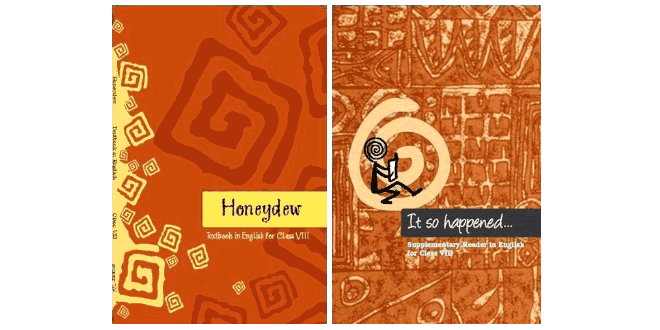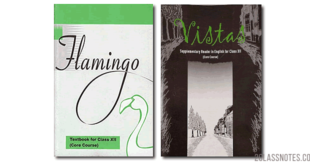The Selfish Giant 8th Class NCERT CBSE English ‘It So Happened’ Chapter 3
Question: Was the Giant happy or sad over the state of the garden?
Answer: The Giant was sad over the state of his garden. He could not understand why spring was so late in coming.
Question: What effect did the linnet’s song have over Hail and the North Wind?
Answer: When the linnet sang, the Hail stopped dancing over his head, and the North Wind stopped roaring.
Question: Where had the Giant gone? What did he see when he arrived?
Answer: The Giant had gone to his friend, the Cornish Ogre and had stayed with him for seven years. When he arrived he saw the children playing in the garden.
Question: Why did he build a high wall round his garden?
Answer: He didn’t want children to play in his garden. Therefore, he built a high wall round it in order to stop them from entering it.
Question: What happened to the Giant’s garden when the spring came?
Answer: All over the country there were little blossoms and little words. But the Giant’s garden remained deprived of them. There was still winter there instead of the spring. The birds didn’t care to sing in it, as there were no children and the trees forgot to blossom.
Question: What changes came to be noticed in the Giant’s behavior?
Answer: Previously he was a selfish Giant. He didn’t like children and their playing in his garden. But one day he realized his fault and became affectionate towards them. He opened his garden for them. He began to play with them.
Question: Why is the Giant called selfish?
Answer: The Giant is called selfish because he did not let the children play in his garden. He drove them out, built a high wall around his garden, and put up a board that read ‘Trespassers will be prosecuted.’
Question: On one occasion the children said: “How happy we are here!”
Later they said: “How happy we were there!”
What are they referring to in both the cases?
Answer: In the first case, they are referring to the Giant’s garden where they would play while returning from school. They had a great time whenever they played in the garden.
In the second case, they are again referring to the garden; talking about how happy they were before the Giant stopped them from playing in his garden.
In both the cases, the children are referring to the Giant’s garden.
Question:
- When spring came, it was still winter in the garden. What does winter stand for or indicate here?
- Winter has been presented like a story with its own characters and their activities. Describe the story in your own words.
Answer:
- In the story, winter stands for a negative, desolate and lifeless environment. In this environment, trees and flowers do not blossom. Here, winter also refers to an atmosphere of depression and laziness. Since birds did not sing, children did not play and spring did not visit the garden, winter prolonged its stay in the garden.
- When spring came, the birds did not sing as there were no children. The trees too did not blossom. At a particular instance, a flower put its head out from the grass. However, when it saw the notice board put up by the giant, it felt sad and sorry for the children, got back inside the grass, and went off to sleep.On the other hand, snow and frost were very happy. While the snow covered the grass, the frost fell on all the trees. They invited the North Wind to stay with them, and later even the Hail was asked to visit. The Hail rattled the roof of the castle everyday until some of it started breaking, and then it ran round the garden again and again as fast as it could.
Question: The little child’s hands and feet had marks of nails. Who does the child remind you of? Give a reason for your answer.
Answer: The child reminds one of Jesus Christ. When the Giant met the little child for the second time, he saw imprints of nails on his palms and feet. When Christ was crucified, nails were dug into his palms and feet. He had sacrificed his life for humanity, so that the sins of the world would be washed away. That is why the child told the Giant that those were the wounds of love.
Question: Is there something like this garden near where you live? Would you like one (without the Giant perhaps) and why? What would you do to keep it in good shape?
Answer: This question requires you to use your own perspective as well as your analytical skills. The answer to the question would vary from one person to another. It is suggested that you read the text carefully and try attempting it on your own.
Question:
- The Giant saw a most wonderful sight. What did he see?
- What did he realize on seeing it?
Answer:
- The Giant saw that the children had entered the garden through a small hole in the wall, and were sitting on the branches of trees. There was a child on every tree. The trees had covered themselves with blossoms as they were glad to have the children back. The birds were flying about and twittering in delight, and the flowers and grass were laughing out loud.
- He realized that spring did not come to his garden because he had prevented the children from playing in his garden. He realized that he was selfish not to allow the children to play in his garden.
Question: Why was it still winter in one corner of the garden?
Answer: In one corner of the garden, there was a tree all covered with frost and snow. The North Wind was blowing and roaring above it. A little boy was standing in front of it, but could not reach its branches. As a result, there was still winter in this part of the garden.
Question: Describe the first meeting of the little boy and the Giant.
Answer: The first meeting of the little boy and the Giant was beneath the tree that was covered with frost and snow. The Giant took him gently in his hands and put him up into the tree. The tree at once blossomed, and the birds came and sang on it. The little boy stretched out his two arms, flung them round the Giant’s neck, and kissed him.
Question: Describe their second meeting after a long interval.
Answer: Their second meeting took place after a long interval; on a winter morning. The Giant was surprised to see that in the farthest corner of the garden, there was a tree covered with lovely white blossoms. Its branches were golden, and silver fruit hung down from them. The little boy stood underneath it. The Giant went towards him in great joy. As he came near the child, his face grew red with anger when he saw that there were imprints of nails on his palms and feet. The Giant asked the little boy who had wounded him, and told him that he would slay the one who had done so. The child answered that those were the wounds of love. Kneeling before the little child in awe, the Giant asked him who he was. The child smiled at the Giant, and said to him that since he had let him play once in his garden, that day he would come with him to his garden, which was paradise.
Question: The Giant lay dead, all covered with white blossoms. What does this sentence indicate about the once selfish Giant?
Answer: The white blossoms that covered the Giant indicate that he was not selfish anymore. He had understood how mean he had been by not allowing the children to play in his garden. He had realized his mistake, and was kind to the children from then on. That is why his body was covered with white blossoms when he died.
Question: Describe in brief the Giant’s garden.
Answer: The Giant’s garden was very beautiful. It had soft green grass. Here and there over the grass stood beautiful flowers like stars and there were twelve peach trees that in the spring time broke out into delicate blossoms of pink and pearl, and in autumn bore rich fruit.
Question: Who did the Giant love most? Why?
Answer: The Giant loved the little boy most because he had kissed him. He felt helpless and began to cry. The Giant saw him. His heart melted all of a sudden. He came to the little boy and put him into the tree. The tree broke at once into blossom and the birds came and sang on it. The little boy became happy. He stretched out his two arms and flung them round the Giant’s neck, and kissed him. The Giant’s joy knew no bounds. He (the Giant) made the little boy his friend.
Question: What evidence do you find in the story about the Giant’s selfishness and wicked nature? Did he stick to this? How do you know?
Answer: The Giant was self centered and wicked. He wanted his garden only for his own use. He forbade the entry of children there. He put up a notice board that who soever entered the garden without his permission would be punished. He also got a high wall constructed all around it. Children were horrified to see this. They flew away from the garden. It shows the giant’s selfishness and wicked nature. But he didn’t stick to this. He became soft towards the children. He broke the wall that he had constructed around his garden and allowed the children to play there. He regarded the children as the most beautiful flowers of all.
 Class Notes NCERT Solutions for CBSE Students
Class Notes NCERT Solutions for CBSE Students


